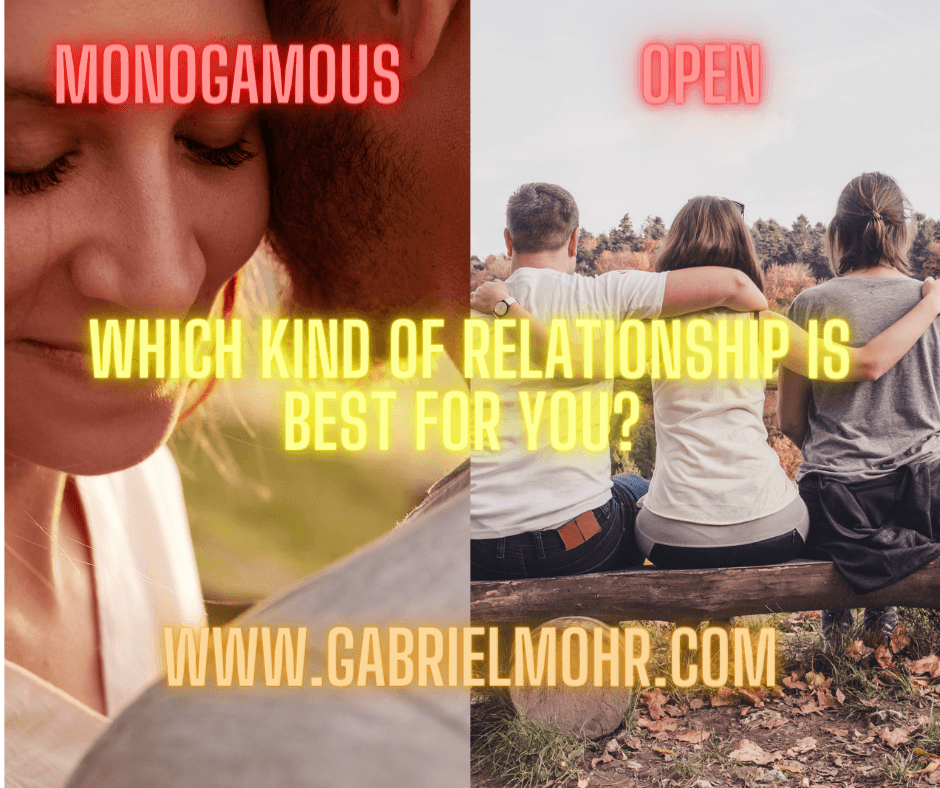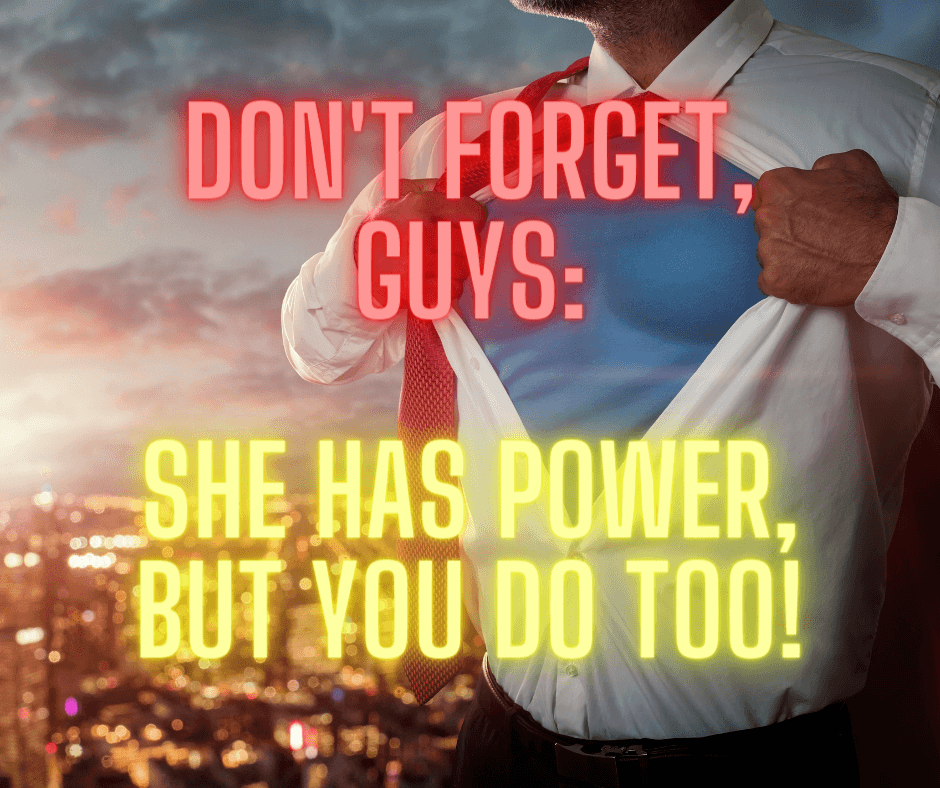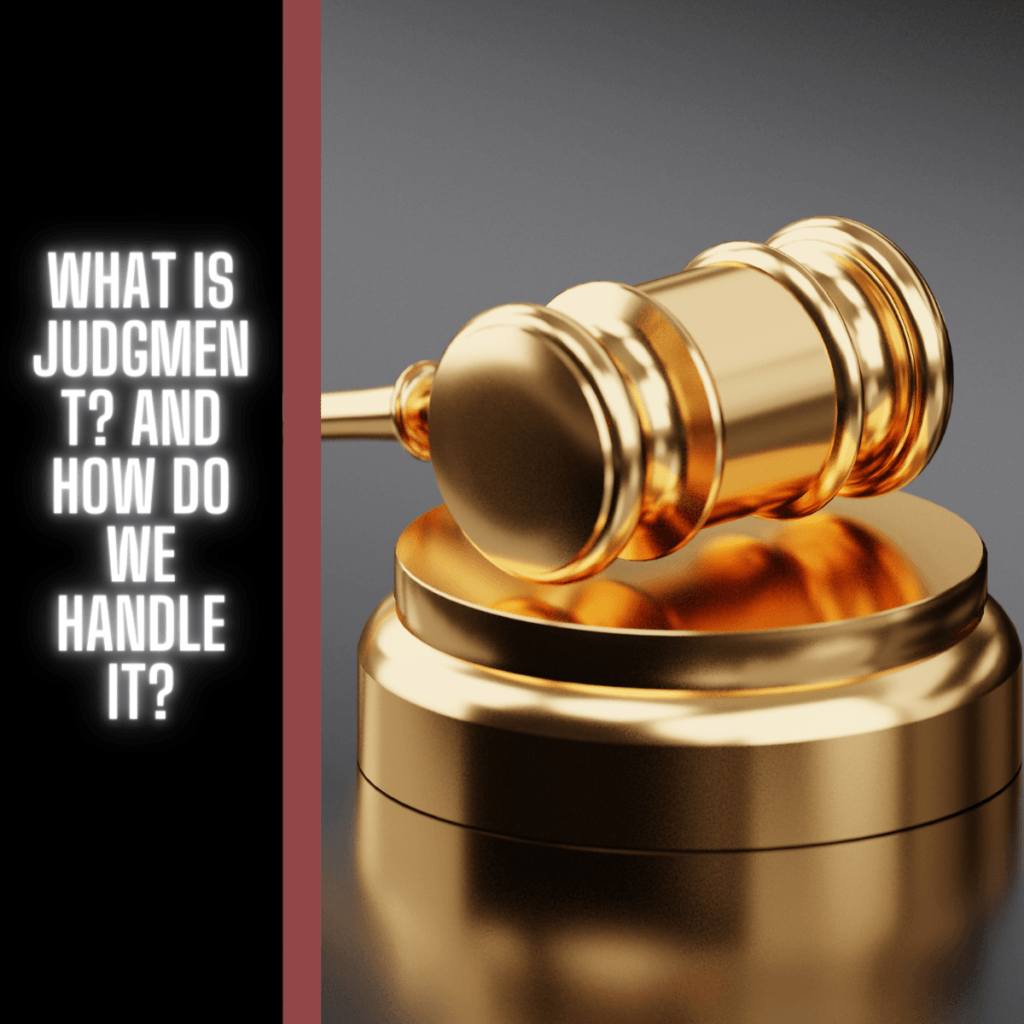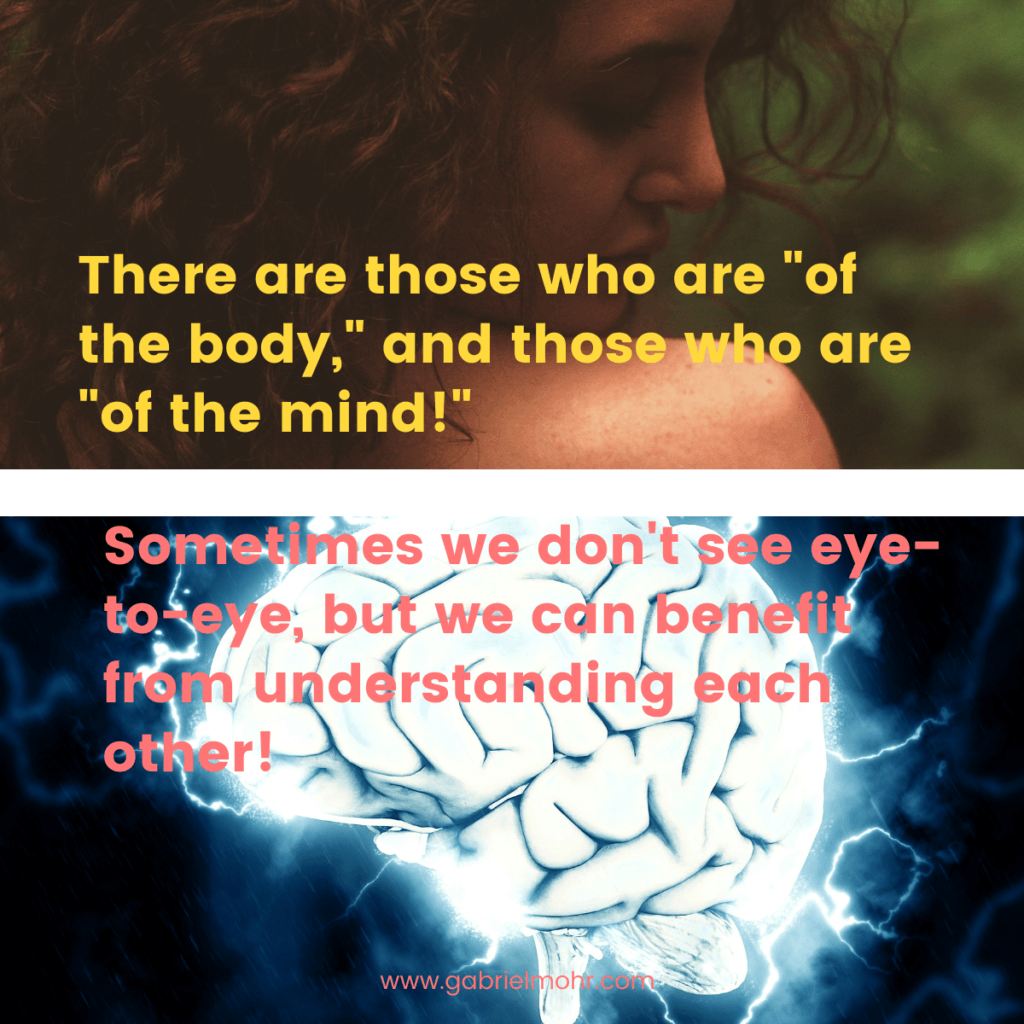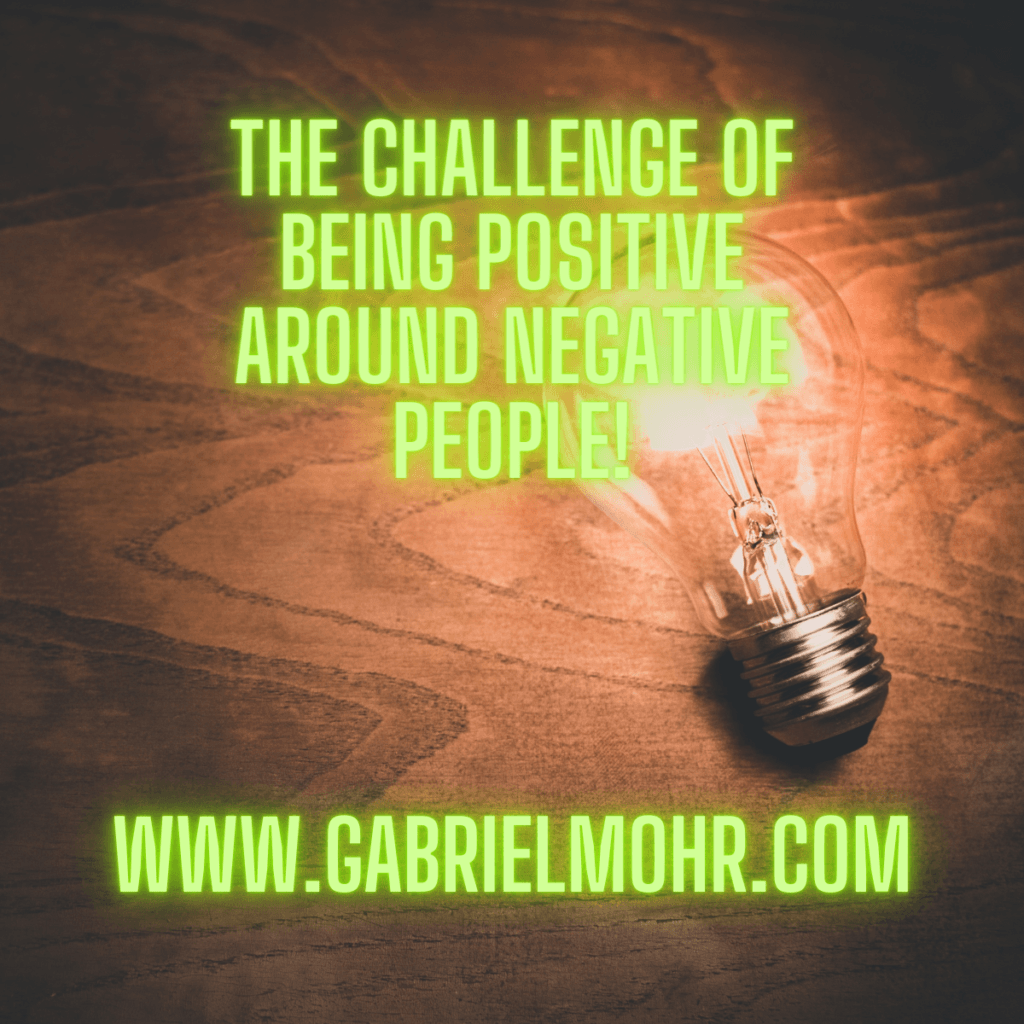
Quick Fact
-It can be very difficult to be positive around negative people, especially if their negativity is strong. However, doing so often makes life easier to live for you, and sometimes, it even helps them!
Intro
Well, this post is long overdue my friends! I feel like one of the toughest and most rewarding things we can do is be bright, positive, and vibrant around those who are the exact opposite, and I’m going through this challenge as we speak!
Should we do it? And why? And how? All of these questions will be answered below! Please keep in mind that I speak from personal experience and my conclusions gained from observing many, many people live their lives 🙂
Why Be Positive Around Negative People?
Ahh yes, one of the most important three-letter words I’ve ever come across in my life – why? Why not go with the flow, accept the black energy, and be negative like they are? It’s easier to do that, right?
Sometimes, sure! Sometimes being around negative people can feel draining, and maybe even impossible, depending on your situation. However, there are a few reasons why I answer in the affirmative:
- Positive emotion is regenerative by nature, and the opposite is true for negative emotion. This means that the higher the intensity and the longer the time someone feels negative, the lower their quality of life is for themselves and everyone around them – if we aren’t careful! My first reason for staying positive in a negative situation is to keep your mental and physical health as high as it can be!
- Second, it’s a great practice for your mind and a great way to form and keep a higher perspective. People who suffer from chronic negativity are usually low in intelligence, which begets negativity, which begets low intelligence. So, using the intelligence we have to understand where they’re at and not being affected by it is amazing to keep our minds sharp and our perspectives extremely high.
- It’s really nice to see the triggers you have in yourself! For example, if you’re staying positive in the moment and your vibration suddenly drops, this is a stellar opportunity to ask yourself some questions, get to the root belief(s) of the emotion, disidentify from it, feel the emotion, then release it for good!
- Being able to stay positive in a negative situation often gains you respect from others, and if you observe frustration from negative people failing to pull you into their world, you’ll know who is truly testing you… More on that later.
- Lastly, it can be considered a fun challenge! I often opt to take this approach since negative people have been in my life for a while – instead of taking this “being positive around negative people” thing seriously I see it as a game, a challenge, and if I lose or temporarily fail I’m not so hard on myself… I learn from it and start again!
While it may be easier to simply go with the flow there are many reasons to push against negative emotions with positive ones! I’d say the most important reason is your mental health, the mental health of those around you, and spiritual ascension!
Why Is It Almost Always So Difficult?
But enough of that – let’s get into the serious stuff, shall we?
While it’s a wonderful skill to be able to do this, it’s often seen as impossible for certain reasons:
- The negativity emitting from some people is so strong that it’s stronger than most people’s ability to create and obtain positive emotion. Please keep in mind that so, so many people subconsciously mass-produce negativity in their own psyche for so long that it becomes their comfortable space, what they know, and the space they absolutely must pull people down towards. It can be difficult to stay positive in the face of this.
- If you’re creating your own negativity in your life then you’re essentially trying to be positive in the midst of multiple sources of (most likely powerful) negative feelings. If it’s your own negativity it’s probably best to go into it and feel it, but more on that later.
- I mentioned this in the first point, but it’s worth mentioning again – some people are so good at pulling other people down to their level that they create and hold to a secret ‘terms of service:’ if you are not like them, they will not accept you, and you cannot be around them. It can be very tempting to bring your own positive power to a screeching halt to be with these people, especially if you’re working together.
I point these things out because a lot of negative people in this world aren’t passively negative, they’re actively going against positivity and positive thinking. Usually, they’re doing this subconsciously, but at the end of the day, it doesn’t matter – they often destroy people in ways they’ll never understand!
Diving Into Your Own Negativity
If you are the one producing the negativity you’re trying to be positive towards, there’s something to be said here!
Consciously choosing to go into your own negativity, feeling it, accepting it for what it is, disidentifying from it, and releasing it is a much better idea than trying to suppress it with positivity. In fact, bringing up your inner negativity around negative people is usually a good idea since they’ll understand where you’re coming from. Once you purge yourself of the “black energy” and its generators, you’ll automatically feel a lot better and find it a lot easier to be as positive as you want!
Ways To Do It!
So how do we be positive around negative people?
Firstly, I recommend you purge your own negative energy like how I’ve mentioned above. But then, you can make it a point to create positive energy within yourself and make it extremely strong! This can be done by saying, “I choose to create a feeling of confidence that is impossible to be taken away,” and once you succeed, you can be very, very positive around negative people.
The second way is by doing your best to instill positivity into others. Personally, I find this to be more difficult than the former, especially if we’re trying to change someone who is extremely negative… However, it is possible, especially if you know what they like, what is good for them, where they’re going, and where they should be going.
But the 3rd (and perhaps best) way to be positive around negative people is to text them when they aren’t around! It’s much, much easier to be in a positive light when we aren’t around them, and almost everybody experiences a dopamine rush when they open their phones, so texting them a positive message is a great way to be positive around negative people.
However, don’t be afraid to create your own way! I’ve found that creating my own way of doing things gives me a higher chance of success as opposed to following other people’s suggestions, and I suspect the same is true for you 🙂
Final Thoughts
It’s very okay to feel negative, especially if we’re aware that we’re feeling negative, and of the reason(s) we feel negative. However, sometimes it becomes too much, too overwhelming, especially if they’re actively trying to pull you down to their level and keep you there.
Developing this skill is more important than it seems because being able to feel positive under any and every circumstance is an amazing way to guarantee wellbeing and success for yourself and the open-minded around you!
Conclusion
Thank you so much for reading my post! I’m truly grateful that you’re here, and I’ll see you in the next article 🙂
